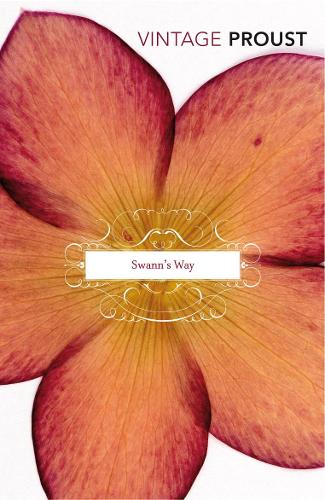
In Search Of Lost Time Vol 1: Swann's Way
(Paperback)
Publishing Details
In Search Of Lost Time Vol 1: Swann's Way
By (Author) Marcel Proust
Translated by C. K. Scott Moncrieff
Translated by Terence Kilmartin
Revised by D. J. Enright
Translated by D. J. Enright
Vintage Publishing
Vintage Classics
10th January 1997
5th December 1996
United Kingdom
Classifications
General
Fiction
Modern and contemporary fiction: literary and general
843.912
Physical Properties
Paperback
544
Width 129mm, Height 198mm, Spine 34mm
379g
Description
The definitive translation of the greatest French novel of the twentieth century The definitive translation of one of the greatest French novels of the twentieth century In the opening volume of Proust's great novel, the narrator travels backwards in time in order to tell the story of a love affair that had taken place before his own birth. Swann's jealous love for Odette provides a prophetic model of the narrator's own relationships. All Proust's great themes - time and memory, love and loss, art and the artistic vocation - are here in kernel form. 'Surely the greatest novelist of the 20th century' Telegraph
Reviews
My advice is to plunge straight into Volume 1, Swann's Way there are many who swear the experience has permanently enriched their lives * Daily Mail *
One of the cornerstones of the Western literary canon * The Times *
Surely the greatest novelist of the 20th century * Sunday Telegraph *
As close to being a definitive English version of the great novel as we are likely to get * Scotsman *
Proust isn't just the most profound of novelists, but the most entertaining, too. No reader ever forgets his most killingly funny scenes... Proust sinks deepest in readers because the book is so exhaustively analytical, so ceaselessly truthful. Not the least of it is the book's heavenly length, so that it inevitably takes over your life for a long stretch... the experience of reading it becomes, in itself, an unforgettable thing * Independent *
Author Bio
Marcel Proust was born in Auteuil in 1871. In his twenties he became a conspicuous society figure, frequenting the most fashionable Paris salons of the day. After 1889, however, his suffering from chronic asthma, the death of his parents and his growing disillustionment with humanity caused him to lead an increasingly retired life. He slept by day and worked by night, writing letters and devoting himself to the completion of A la recherche du temps perdu. He died in 1922 before publication of the last three volumes of his great life's work.
